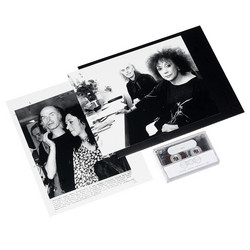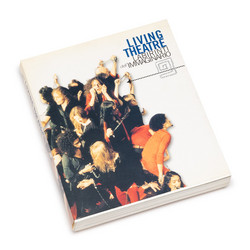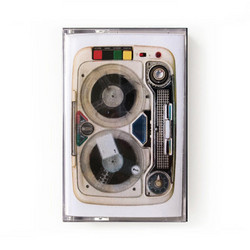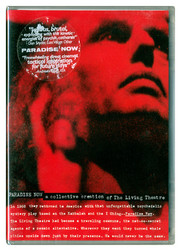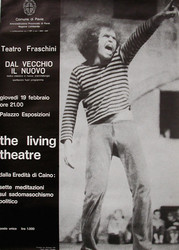Living Theatre
The Living Theatre is an American theatre company founded in 1947 and based in New York City. It is the oldest experimental theatre group still existing in the U.S. For most of its history it was led by its founders, actor Judith Malina and painter/poet Julian Beck; after Beck's death in 1985, company member Hanon Reznikov became co-director with Malina. In the 1950s, the group was among the first in the U.S. to produce the work of influential European playwrights such as Bertolt Brecht (In The Jungle of Cities in New York, 1960) and Jean Cocteau, as well as modernist poets such as T. S. Eliot and Gertrude Stein. Based in a variety of small New York locations which were frequently closed due to financial problems or conflicts with city authorities, they helped to originate Off-Off-Broadway and Off-Broadway as significant forces in U.S. theater. Their work during this period shared some aspects of style and content with Beat generation writers.
The Living Theatre is an American theatre company founded in 1947 and based in New York City. It is the oldest experimental theatre group still existing in the U.S. For most of its history it was led by its founders, actor Judith Malina and painter/poet Julian Beck; after Beck's death in 1985, company member Hanon Reznikov became co-director with Malina. In the 1950s, the group was among the first in the U.S. to produce the work of influential European playwrights such as Bertolt Brecht (In The Jungle of Cities in New York, 1960) and Jean Cocteau, as well as modernist poets such as T. S. Eliot and Gertrude Stein. Based in a variety of small New York locations which were frequently closed due to financial problems or conflicts with city authorities, they helped to originate Off-Off-Broadway and Off-Broadway as significant forces in U.S. theater. Their work during this period shared some aspects of style and content with Beat generation writers.
